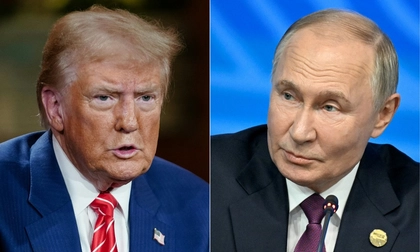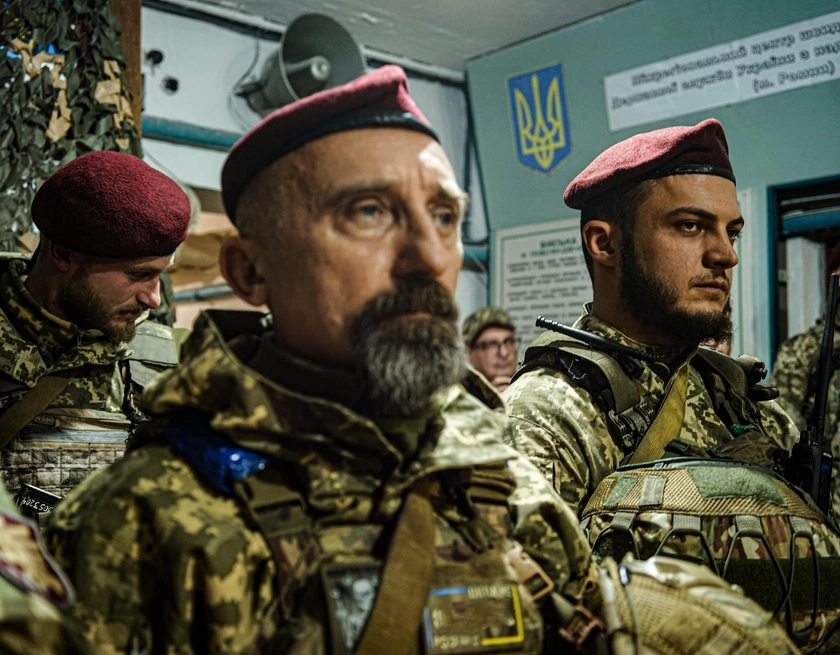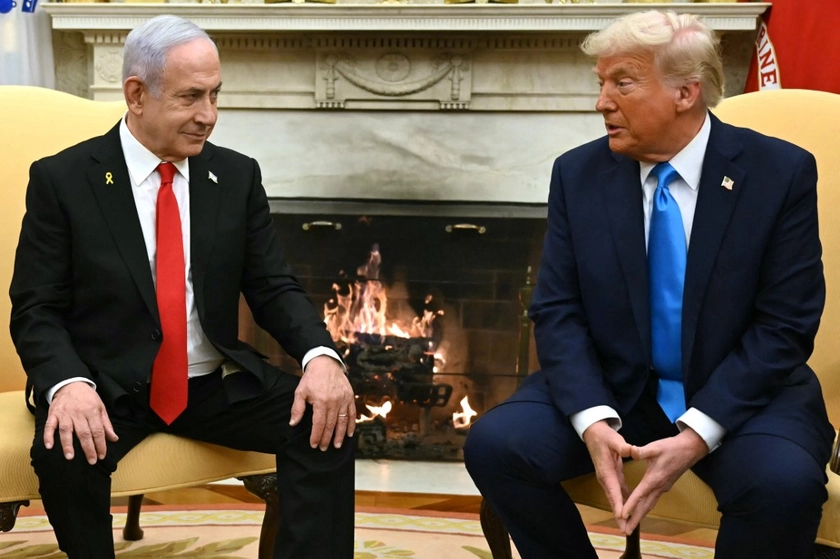Operators from Ukraine’s Military Intelligence Directorate (HUR) and agents from the Security Service of Ukraine (SBU) will take the lead in future talks between Kyiv and the Kremlin on prisoner-of-war exchanges, HUR chief Kyrylo Budanov said in a Thursday evening statement.
Ukraine’s government will centralize efforts to return soldiers captured by Russia home through a Prisoner of War Coordination Headquarters including representatives from HUR, the SBU, the Ministry of Internal Affairs, the Armed Forces of Ukraine (AFU) “and others,” Budanov said.
JOIN US ON TELEGRAM
Follow our coverage of the war on the @Kyivpost_official.
Priority for return will go to Ukrainians detained in Russia who are severely wounded and sick, women, and to soldiers in captivity for a long time, he said.
Fighters captured during battles in Mariupol in 2022 and ethnic Crimean Tartars in some cases imprisoned by Russia for as much as ten years will “receive special attention,” Budanov said.


Russia Presents Demands to US to End War: Capitulation
Budanov’s remarks came one day after Vasyl Malyuk, head of the SBU, told local media his agents would be part of a centralized, cross-government negotiation effort to bring Ukrainian soldiers captured by Russia home. Recent massed surrenders by Russian soldiers to Ukrainian troops may give Kyiv additional leverage in talks with Moscow, he said.
Malyuk’s comments, published on official government information platforms confirmed reports that an SBU 14-man strike team assaulting defensive fortifications in Russia’s western Kursk region had captured 102 enemy personnel, setting a record for Russian soldiers taken into Ukrainian custody in a single day, for the entire war.
Helmet-cam video of the Wednesday action showed SBU teams winkling out Russian conscripts and fighters from Akhmat, a Moscow-loyal paramilitary unit recruited in Chechnya and primarily used by the Kremlin to suppress civilian opposition to Russian rule, from strongly built fortifications. Those images showed negligible Russian or Chechen resistance to fast-moving Ukrainian operators.
“We are already thinking about how to use this [large numbers of Russian soldiers captured in the Kursk offensive] as effectively as possible to return our defenders home,” Malyuk said. “The return of Ukrainian defenders is a top-priority task set by the Supreme Commander-in-Chief… And this is an important part of our work.”
SBU operators have been interviewing individual Russian soldiers to collect evidence to support possible future war crimes prosecutions against Kremlin decision-makers and to collect intelligence, he said.
Kyiv’s offensive into Kursk region has by almost all accounts, including Russian, captured hundreds of Russian service personnel in battles and through mass surrenders without fighting. The Ukrainian government has been tight-lipped about operational details, but senior officials said Russian soldiers taken into Ukrainian custody over the past 10 days number at least in the high hundreds.
Unconfirmed Ukrainian soldier and media accounts have mostly placed the total number of Russian service personnel taken captive at between 1,000 and 2,000 men, with the figure climbing daily.
The last time Moscow saw hundreds of its soldiers taken prisoner in combat was in 1996, during the First Chechen War, when guerillas in a surprise offensive surrounded and overran dozens of Russian unit bases and field positions deployed around the Chechen capital city Grozny.
Ukrainian President Volodymyr Zelensky during a Monday televised national security council meeting said Kyiv would, in part because of large numbers of Russian soldiers recently surrendering to Ukrainian forces in the Kursk sector, centralize its efforts to return prisoners of war taken by Russia.
Zelensky named the office of the Ombudsman and “public organizations” as groups that also would place representatives in the HUR/SBU/Army-led Ukrainian national government team negotiating with the Kremlin.

Russia for the first time in the war, initiated proposals for talks on POW swaps, Dmytro Lubinets, parliamentary national Ombudsman, said in a Thursday statement.
According to Ukrainian news reports and soldier accounts, a majority of the Russian service personnel captured in Kursk region were recently drafted conscripts. President Vladimir Putin has repeatedly promised Russian voters that young draftees would not fight in Russia’s war against Ukraine.
The most recent major trade of Russian and Ukrainian military prisoners, in January 2024, brought 230 captured Ukrainians home in exchange for 248 returned to Russia. Diplomats from the United Arab Emirates mediated the deal. On July 17, less than a month before Ukraine kicked off its Kursk offensive, in another UAE-brokered deal, 95 Ukrainians were released from Russian prisons in exchange for 105 Russians.
An April New York Times report citing Ukrainian officials said some 10,000 Ukrainian citizens are in Russian captivity. According to Ukrainian media reports as many as three-quarters of them are civilians arrested by Russian authorities.
A Friday statement by the Association of Families of the Defenders of Azov, a grassroots group working for the return of Ukrainian fighters captured by Russia following a bloody siege of the port city Mariupol from February to May 2022, some 900 members of the Azov national guard regiment are being held in harsh conditions in prisons across Russia.
Recent AFU mass captures of Russian troops might help Azov combatants now imprisoned for more than two years to go free, the group said.
“We, along with the whole country and the world, are watching the progress of events on the front line with delight, we are proud of the military achievements of our army in enemy territory [in the Kursk region] and the news of how our exchange fund is growing,” a statement said.
“Exchange fund” (Ukrainian: обмінний фонд) is a frequently used term for Russian soldiers taken into Ukrainian custody, by the AFU, so that Ukrainian prisoners held by the Kremlin might be exchanged. Per AFU doctrine, soldiers are trained to take Russian soldiers alive in combat, if possible, rather than killing them, “to add to the exchange fund.”
You can also highlight the text and press Ctrl + Enter



![[WATCH] Troops Perform Haka War Dance in Tribute to Fallen Kiwi Soldier in Ukraine](https://static.kyivpost.com/storage/2025/03/12/6f0c7c03e02dbb3fd1987f8ee9baf7b2.png?w=840&f=webp)







